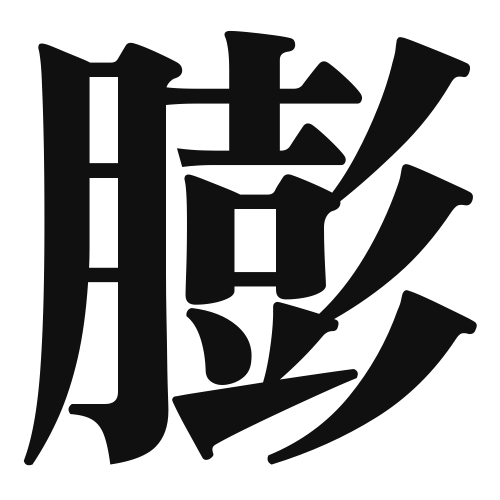1. Overview of Meaning
The kanji “膨” (bō) means “to swell” or “to expand.” It is often used to describe something that has increased in size or volume, such as a balloon or dough rising.
2. Formation and Radical
The kanji “膨” is a phonetic-ideographic character (形声文字), which combines a meaning component and a phonetic component. The left part, “肉” (meaning “meat” or “flesh”), suggests a connection to something soft or pliable, while the right part, “傍” (bō), provides the pronunciation.
The radical of “膨” is “肉” (niku), which is commonly associated with meat or flesh, indicating a relationship to physical substance.
3. Examples of Usage
Common words and phrases that include “膨” are:
- 膨張 (bōchō) – expansion
- 膨らむ (fukuramu) – to swell or puff up
Example sentence in daily conversation:
「この風船は膨らんでいる。」 (Kono fūsen wa fukurande iru.) – “This balloon is swelling up.”
4. Synonyms and Antonyms
Similar kanji with related meanings include:
- 膨らむ (fukuramu) – to swell, which emphasizes the action of expanding.
- 増加 (zōka) – increase, which refers to a rise in quantity rather than size.
Antonyms include:
- 縮む (chijimu) – to shrink, which means to become smaller.
5. Cultural and Historical Background
The kanji “膨” is often associated with Japanese culture in the context of food, particularly in relation to cooking and baking, where ingredients expand during the process. It can also be found in proverbs and idiomatic expressions that convey the idea of growth or increase.
For example, the phrase “膨らむ夢” (fukuramu yume) means “a swelling dream,” indicating aspirations that are growing larger or more ambitious.
